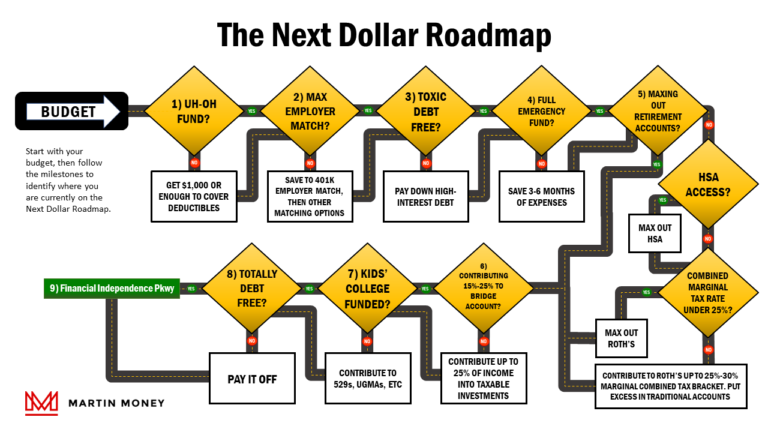Should I Use ChatGPT for Financial Advice?
ChatGPT can be a very useful resource for educating one’s self about finance, but it is not a suitable replacement for a well-reasoned, human approach to financial planning. Users should consider the program’s limitations and fact-check information provided by ChatGPT.
In case you’re unfamiliar with ChatGPT, it is an artificial intelligence chatbot developed by a company called OpenAI. Basically, if you give it a question or statement it will generate a thoughtful and detailed response.
It was first released in November of 2022 and has caused quite a stir.
The reason for the uproar is the program’s impressive ability to not only respond to nearly any inquiry you send its way but also because it provides a response in narrative form specifically addressing your question.
So, where you may normally submit an inquiry into a search engine and receive a series of links to helpful websites, articles, or videos, ChatGPT allows you to submit the same question and receive a thorough written response directly addressing your question.
So thorough, in fact, that many educators are worried about widespread plagiarism and cheating in schools and colleges worldwide.
They have good reason to be concerned.
In January, ChatGPT was able to pass the bar exam when a professor at the University of Minnesota School of Law submitted 95 multiple-choice and 12 essay questions to the program.
The final grade wasn’t stellar, but that’s still quite a feat.
Naturally, people in every walk of life have begun investigating different uses for the system, including those of us interested in personal finance.
As I’ve been tinkering and pondering the use of ChatGPT myself, I became curious whether the program can provide good, basic financial advice.
So, I put it to the test.
Should I Seek Financial Advice from ChatGPT?
In a word? No.
But, it’s not that simple.
As we’ll see in a second, even ChatGPT will encourage you to seek financial advice from a professional.
Not exactly a beacon of confidence.
However, ChatGPT is useful as a quick resource if you need information about nearly anything.
I created an inquiry of my own to evaluate it. Let’s see how it went.
ChatGPT Offers 401(k) Advice
When I ran my test I submitted a question that’s very similar to a recent post we wrote titled “What is a 401(k) and How to Use One in 2023?”
The actual question I submitted to ChatGPT was, “what is a 401(k) and how should I use one in 2023?
I’m not going to post ChatGPT’s exact response because I’m somewhat afraid search engines will be able to detect it as AI-produced and shove my URL into a digital black hole.
I don’t want anything on our site to be mistaken for plagiarized material or information we’re passing off as if it is our own.
If you want to read the response yourself, just copy the question yourself and drop it into ChatGPT.
So, how did ChatGPT respond?
The response began with an introduction about what 401(k)s are. Fair enough.
The information in the introduction was factually correct, though limited only to Traditional 401(k)s. Roth 401(k)s did appear later in the response which we’ll get into below.
After the introduction, ChatGPT listed 7 pieces of advice that I assume were given in response to my question about how I should use a 401(k) in 2023.
Those 7 points are as follows:
- Maximize your contributions
- Consider a Roth 401(k)
- Diversify your investments
- Review your investment strategy regularly
- Take advantage of employer matching:
- Don’t withdraw early
- Seek professional advice
Any Errors?
There was one mistake in the response from ChatGPT.
ChatGPT suggested that I maximize my 401(k) contributions in the first bit of advice. In the response paragraph, the program claimed that “In 2023, the maximum amount you can contribute to your 401(k) is $20,500 per year.”
Yeah…about that.
The maximum amount you can contribute on a pre-tax or Roth basis in 2023 is $22,500. This is $2,000 more than ChatGPT suggested.
Furthermore, the actual maximum you can legally put into a 401(k) in 2023 is $66,000 if you’re under 50, though anything beyond $22,500 would lose special tax treatment and your employer contributions count against the $66k max (but not the $22,500).
This highlights two important considerations.
First, ChatGPT might give you incorrect information.
Hopefully, it’s close to correct and humans are just as likely to have oversights like this in my opinion. (Write about this stuff enough and you’ll have an error or two also.)
Either way, it is very important to note that one can’t assume the information ChapGPT provides is absolutely correct.
Next, ChatGPT is going to provide responses at a general level.
There’s more to maximum 401(k) contributions than to just say “the max is $22,500”. It can be different based on a several factors.
This high-altitude approach was consistent throughout the remainder of ChatGPTs response.
Again, I’m not going to list the full responses, but they hit some good talking points and communicated very little in the way of meaningful data from which you can make an actual decision.
In all likelihood, ChatGPT is just going to help you find out what you don’t know.
For example, you may not have known you shouldn’t withdraw from your 401(k) early. ChatGPT does suggest that you wait until retirement to tap your 401(k), but aside from penalties why is this a bad idea?
You’d have to keep searching to understand why.
Some Relevant Datapoints
Our 401(k) post had a little over 4,000 words. The ChatGPT response had 317.
Our post took about 4.5 hours to write. ChatGPT took about 12 seconds to generate its response.
Our post had anywhere from 2-5 errors in the first draft, ChatGPT had just one in its short, simple response.
As you can see, it’s a bit like comparing apples and oranges from the same fruit bowl.
What Was Missing?
Clearly, the post we wrote for martinmoney.com was meant to be an in-depth review of 401(k)s.
I don’t think ChatGPT has any intention of providing an exhaustive response to general questions like the one we posed.
Instead, I assume ChatGPT’s goal is provide a high-level summary response which should invite more questions and further investigation of specific aspects of the topic that interest the originator of the inquiry.
Some of the topics we covered that ChatGPT did not are as follows:
- 401(k) history and intent
- average employer matching
- limitations on contributions
- potential differences in the quality of 401(k) plans
- alternatives to 401(k)s
- 401(k) withdrawals
- early withdrawal options
- 401(k) loans
- hardship withdrawals
- the rule of 55
- rule 72(t)
- Required Minimum Distributions (RMDs)
- the potential dangers of front loading contributions
- the mega backdoor Roth method
- Rolling 401(k) to an IRA
- rolling an IRA to a 401(k)
- net unrealized appreciation (NUA)
- Secure 2.0 changes
- Highly compensated employees (HCEs)
- the legal benefits of 401(k)s.
In fairness, ChatGPT did answer the question I asked, but it isn’t enough information to formulate a solid plan that one can put into action.
Conclusion
In summary, I wouldn’t completely write off ChatGPT as a useful resource for financial information. Like any tool, you need to understand its limitations.
I have to admit, overall I’ve been really impressed with the capability of ChatGPT though I have the same concerns regarding the use of the technology to produce information that people try to pass off as their own.
Also, just like there are constructive and foolish ways to use a screwdriver, ChatGPT can be a helpful resource but it can also unintentionally mislead you if it doesn’t understand the intent behind your question.
And how will you ever communicate subjective elements like intent, goals, fears, etc. to a chatbot?
So, is it cool? Absolutely.
Is it a sufficient replacement for a financial plan generated by a human being? Absolutely not.







